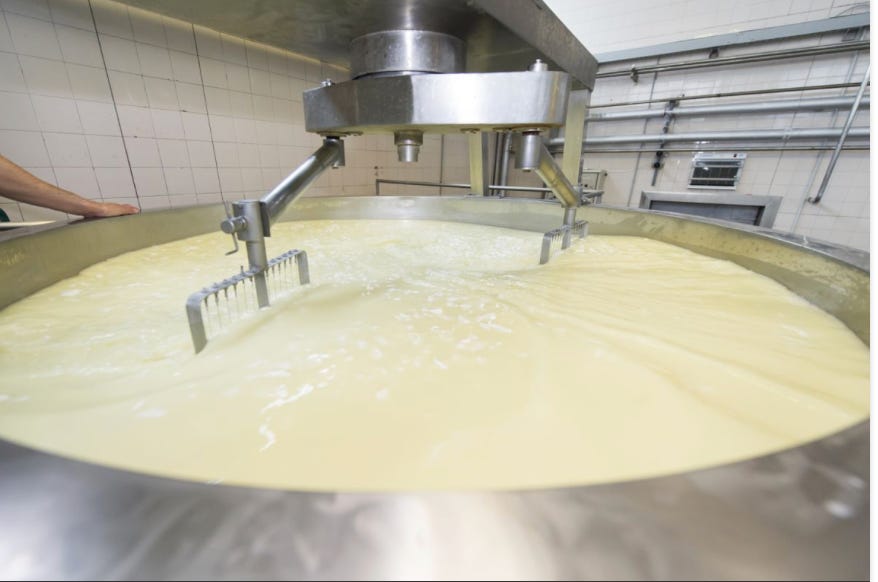90% of Cheese Contains a Pfizer-Developed GMO Ingredient—Here’s What That Means
From Pharma to Fridge
When Cheese Isn’t Just Cheese Anymore: Unpacking the GMO Behind 90% of U.S. Cheese
How much do we really know about the food we eat?
In an era where buzzwords like natural, organic, and grass-fed fill the shelves, it’s easy to assume we’re making informed choices. But what if even something as timeless and comforting as cheese has been quietly transformed behind the scenes?
It turns out, about 90% of the cheese made in the United States uses a GMO-derived enzyme developed by none other than Pfizer in the early 1990s. The enzyme, called fermentation-produced chymosin (FPC), is used in place of traditional rennet—the substance originally sourced from calf stomachs and essential to curdling milk in cheesemaking.
This isn’t a fringe claim. It’s confirmed by the FDA, American Cheese Society, and food science literature. FPC is considered GRAS (Generally Recognized As Safe) and doesn’t require GMO labeling because the final product is “so purified that it supposedly contains no detectable modified DNA”.
And yet… we weren’t really told about it. There was no big announcement, no national debate—just a quiet switch in the supply chain. Today, most cheese labeled as “microbial rennet” or even “vegetarian rennet” likely contains this genetically engineered ingredient.
So what’s the problem?
Maybe nothing. Maybe this process is perfectly safe. Maybe there are no long-term consequences. But the issue isn’t only about safety—it’s about transparency, tradition, and trust.
We have to ask:
Why aren’t we labeling these cheeses as GMO-derived?
Why was this decision made for us without clear public awareness?
What does it mean when a pharmaceutical company helps shape the modern food supply?
And are these small, “efficient” steps away from nature adding up in ways we don’t fully understand?
As someone who values both science and holistic health, I’m not here to fearmonger. I don’t claim that FPC is dangerous. But I do believe we have a right to know what we’re eating—and to choose whether we want food made by biotech or by hand.
When we zoom out, these quiet substitutions are part of a larger pattern: real food replaced with lab-created approximations, not because they nourish better, but because they scale faster and cost less.
So what can you do?
If you’re looking to avoid genetically modified cheese enzymes:
Look for cheeses made with traditional animal rennet.
Choose artisan cheeses from smaller farms who disclose their process.
Ask questions at your local market or cheese shop—chances are, they don’t even know.
Because real change starts when we ask.
—Dr. Joel “Gator” Warsh
Integrative Pediatrician | Author of Between a Shot and a Hard Place
🧀 Want more articles like this—unpacking hidden ingredients, decoding health claims, and bringing you back to real food?
👉 Subscribe and share to join the conversation.






What sensible questions!
We enjoy Parmigiano Reggiano cheese from Italy and Kerrygold Blarney gouda style cheese from Ireland. Would they have this Pfizer developed GMO? Thank you.